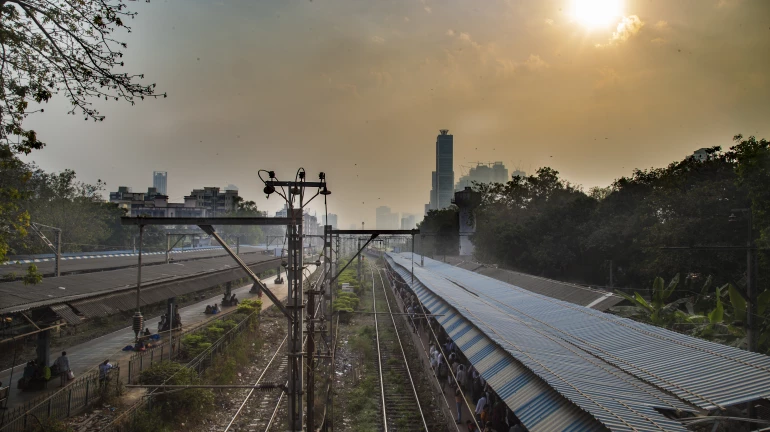
In the year 2017 and 209, one lakh deaths were attributed due to air pollution. Maharashtra ranks second in the country after Uttar Pradesh in regards to the number of lives lost to air pollution. Also under the National Clean Air Action Plan (NCAP), Maharashtra has the highest cities in India- a total of 19 cities identified by the Central Pollution Control Board (CPCB) to reduce Air Pollution by 20-30 per cent.
Some of the cities like Mumbai, Thane, Navi Mumbai, Nashik, Pune, Nagpur, Chandrapur, Aurangabad are listed as non-attainment cities. The latest to be added is Vasai Virar Municipal Corporation. The major contributors to air pollution in Maharashtra are vehicular and industrial emission (including thermal power plants), construction dust and solid fuel emissions.
To address the growing problem of air pollution in the state, experts, civil society and officials from the Maharashtra environment department came together on Tuesday to develop detailed recommendations to improve air quality across the State.
The idea behind this discussion on Tuesday, March 2 was to build effective recommendations for inclusion in the Maharashtra state climate action plan to tackle air pollution. The town hall saw participation from key stakeholders from the government, researchers, doctors, environment groups, citizen organisations, activists and academicians.

Being the first of four town halls in the run-up to World Environment Day (June 5), the one on Air Pollution was organised by Climate Voices - a collective of three organisations Purpose, Asar and Climate Trends along with the Maharashtra Environment and Climate Change Department’s Majhi Vasundhara initiative. It was hosted by nonprofits Waatavaran Foundation and Centre for Science and Environment (CSE).
Manisha Mhaiskar, Principal Secretary, Maharashtra Environment and Climate Change Department, Govt of Maharashtra addressing the town hall said, “The Environment Minister, Aaditya Thackeray, and all of us at the ministry recognise that this decade from 2021-2030 is possibly the last decade for positive climate action, which can help slow down the impacts of climate change. This is why the government launched a 360-degree campaign on Majhi Vasundhara, engaging 700 cities across the state, from metropolises like Mumbai, Pune, Nagpur, to villages from Vidarbha.”
Mhaiskar further added, “These recommendations will be incorporated into a dossier to be submitted before the Maharashtra Chief Minister Uddhav Thackeray and Environment Minister Aaditya Thackeray on June 5 (World Environment Day). The policymakers in the state will attempt to implement as many of these recommendations as possible to shape the state’s climate action plan.”
Some of the key recommendations that were discussed and included are - air pollutant source-specific strategies through policy support for pollution control systems in the industry, promoting district-specific policies for less/non-polluting industries, installation of pollution control systems in thermal power plants, utilizing renewable energy potential, providing incentives to shift existing vehicle users to electric vehicles, promoting public transport usage, reducing vehicle density and usage through carpooling, cycling, walking through urban planning while allowing swift and efficient implementation of BSVI roll out, greening cities and towns to control heat island effect and dust suspension.
Under the National Clean Air Action Plan (NCAP), Maharashtra has the highest number of non-attainment cities in India- a total of 18 cities identified by the Central Pollution Control Board (CPCB) to reduce Air Pollution by 20-30 per cent by 2024, taking levels in 2017 as the base year. A city is identified as non-attainment if it continues to witness poor air quality over a 5-year period failing to meet national air quality standards.
The state follows the national capital closely with 36 continuous ambient air quality monitoring stations providing real-time air pollution data from 9 non-attainment cities (NACs) in the state. Like most Indian cities in winter, pollution levels for all NACs in Maharashtra with CAAQMS monitoring in December 2020 were above 40 µg/m3, which is the acceptable PM2.5 standards for Central Pollution Control Board (CPCB). The WHO safe limit for clean air is 10 µg/m3.
Sundeep Salvi, Pulmocare Research and Education (PURE) Foundation, Pune, expressing his concerns over rising health impacts of air pollution shared, “Our study with Lancet Planetary Health showed that respiratory system related problems across all age categories formed the maximum share of health burden for doctor consultations. Indoor air pollution is also a neglected area which leads to more direct exposure and health impacts. Air pollution also has economic implications. The economic costs of premature deaths attributed to air pollution nationwide was INR 280,000 crores or 1.36 per cent of the GDP and 1.1 per cent of Maharashtra’s state GDP or INR 33,000 crores.”
Twelve years after the first source-identification study for air pollution for Mumbai city, the Maharashtra Pollution Control Board (MPCB) and National Environmental Engineering Research Institute (NEERI) shared the city’s updated list of sources affecting air quality. For particulate matter (PM), the details showed that road dust was the most prominent source (71% - 45 per cent from unpaved and 26 per cent from paved road dust) followed by 8 per cent construction activity and 3 per cent vehicular pollution, and remaining included industries, domestic burning, aircraft, marine vessels, open eateries, bakeries, and crematoria. For nitrogen oxides (NOx), industrial pollution accounted for 35 per cent, vehicles 24 per cent, domestic sector 18 per cent, and remaining included open burning across landfills, eateries etc. The details were shared as a part of an interim report developed by NEERI and submitted to the MPCB.
Dr V M Motghare, Joint director (air quality), Maharashtra Pollution Control Board stated that given the rising air pollution from vehicles Maharashtra government is pushing for electric vehicles. “We will soon have a detailed electric vehicle policy for the entire state. Also currently we have nominated Thane as a model city across Maharashtra for implementing electric vehicles.”
Anumita Roy Chowdhury, Executive Director (Research and Advocacy), Centre for Science and Environment (CSE) talked about how no real progress can come without the support of public. She said, "None of the Clean Air Action Plans would be possible unless people from each city in Maharashtra are aware and there is strong public movement. Hyperlocal action at the neighbourhood scale will be needed to build awareness. Effective change will not be possible unless there is public action to empower change. Citizen science, transparent and accessible data, demystifying science and disseminating health information will be very crucial. Citizens network should include all changemakers and vulnerable groups to connect with the problems and solutions".
Bhagwan Kesbhat, founder, Waatavaran Foundation decoded that and said: “Clean air is not just the responsibility of the government, or an organisation, each one of us has a role to play because air pollution is a collective challenge and it can be resolved only through collaborative and collective efforts.”
Professor Yogesh Dudhpachare, Chandrapur said, "I am suffering from asthma, skin issues, irritation in the eye. This is what pollution in Chandrapur is doing to all of us. Our city that has the highest density of tigers and the huge forest has become a gas chamber for its people".
The town hall also saw the issue of Chandrapur’s Thermal Power Plant being raised by Yogesh Dudhpachare of Green Planet Society, while Frederick D’sa, Working President Mumbai Rickshawmens Union and Vice President of Mumbai Taximen’s Union spoke about the health impacts of air pollution amongst the auto and cab drivers across the State. Bilal Khan from the Ghar Bachao Ghar Banao Andolan spoke about industrial pollution at Mahul. The three later also presented the panel with their individual recommendations to achieve clean air in the state.





